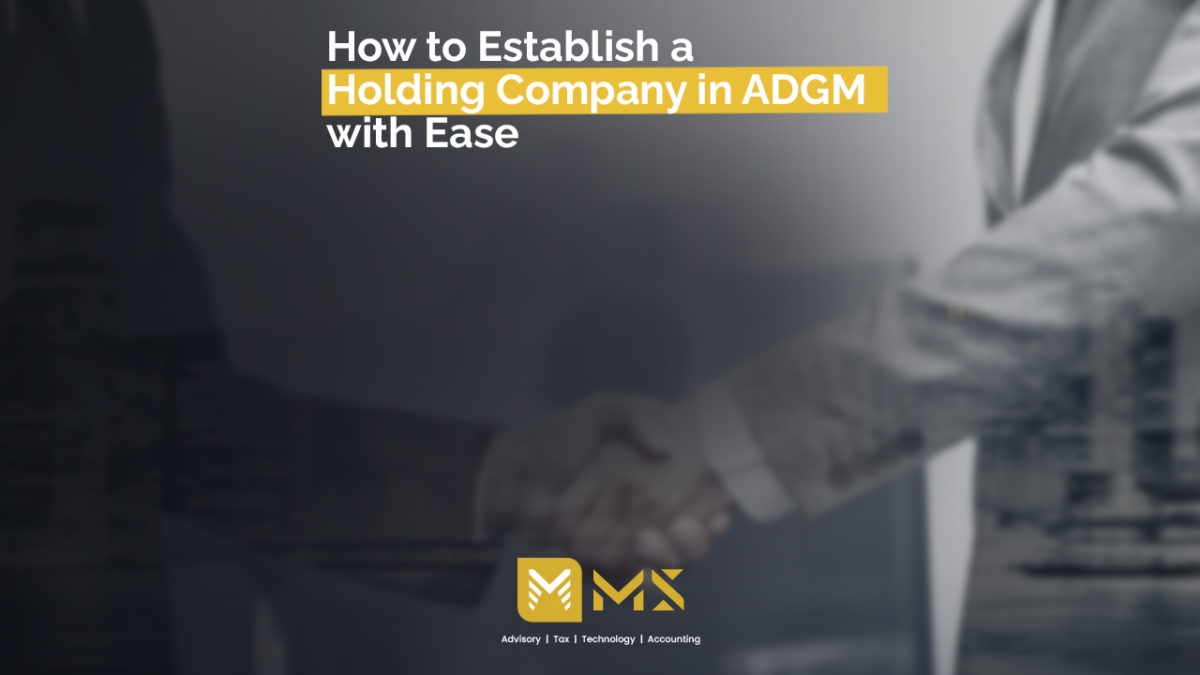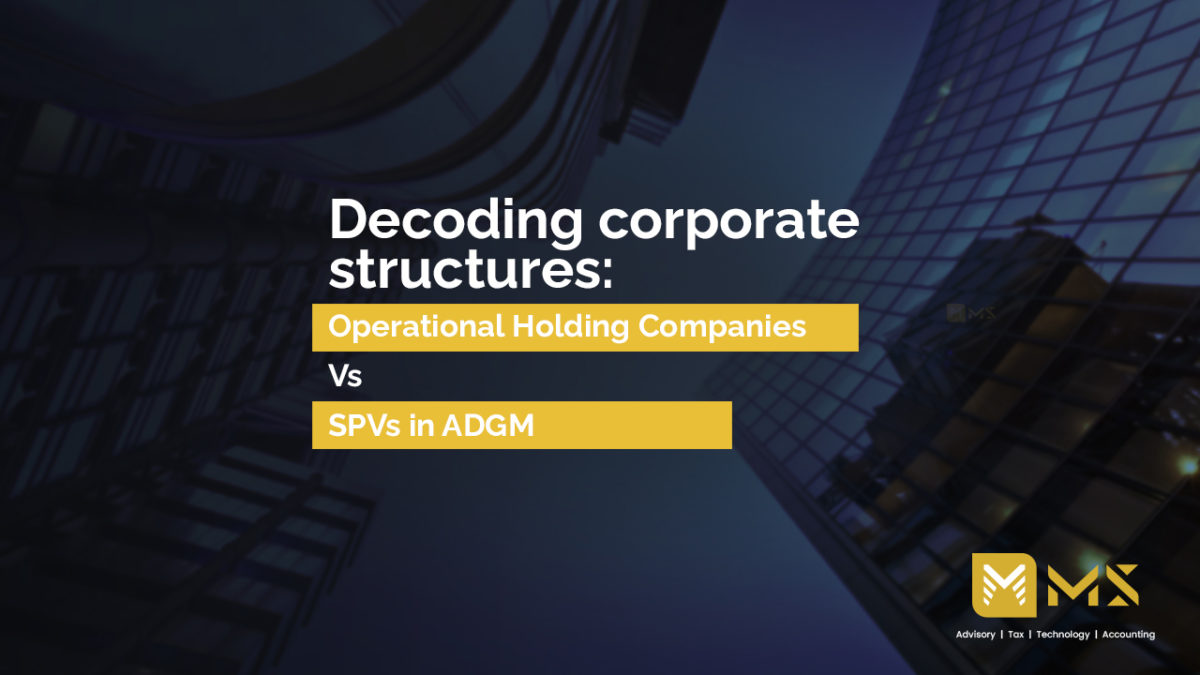The Dubai International Financial Centre (DIFC) in Dubai has rapidly become a leading global business hub, drawing international investors with its prime location, progressive regulations, and top-tier infrastructure. Central to this success is the DIFC holding company—a flexible corporate structure offering substantial benefits for investors aiming to manage and expand their asset portfolios.
What is a Holding Company?
A holding company is a legal entity created primarily to own shares in other companies, referred to as subsidiaries. Unlike the passive holding structures that produce goods or provide services, pure holding companies focus on managing investments and exerting control over their subsidiaries without engaging in direct commercial activities.
Why Choose a DIFC Holding Company?
The DIFC provides a unique value proposition for establishing a holding company, featuring several key advantages:
- Tax Efficiency: The DIFC offers a highly attractive tax regime. Holding companies enjoy a 0% corporate tax rate on certain conditions, resulting in significant tax savings.
- Strategic Location: Positioned at the intersection of East and West, the DIFC is ideal for managing global investments. Its location offers easy access to a wide network of financial institutions and supports seamless cross-border transactions.
- Operational Flexibility: DIFC holding companies can hold a diverse range of assets, such as shares in other companies, intellectual property (IP), and real estate. This flexibility allows investors to efficiently manage varied portfolios from a single, centralized location.
- Streamlined Management: By centralizing control over multiple subsidiaries, holding companies simplify financial reporting, governance structures, and decision-making processes, leading to enhanced operational efficiency.
- Access to Capital: The DIFC’s strong regulatory framework and its reputation as a financial hub boost investor confidence and facilitate access to capital.
- Visa Benefits: Unlike traditional offshore companies, DIFC holding companies are recognized as operational entities, enabling them to obtain visas for employees and their families, thereby fostering a robust and dynamic workforce.
Why the UAE is a Premier Destination for Your Holding Company
The DIFC is located in the UAE, one of the strategic hubs for setting up a holding company. The UAE offers a highly competitive tax environment for holding companies, with no corporate or personal income taxes for most businesses and a zero percent tax rate in free zones. This minimizes the tax burden and simplifies compliance compared to jurisdictions like London, New York, Singapore, and Hong Kong. Additionally, the UAE’s extensive network of double taxation agreements prevents double taxation on the same income.
Beyond taxes, the UAE’s free zones provide 100% foreign ownership, repatriation of profits, and exemptions from import and export duties. Strategically located, the UAE offers access to emerging markets in the Middle East, Africa, and South Asia, creating significant growth opportunities.
The UAE’s political and economic stability, commitment to international standards like BEPS, and transparent regulatory environment make it a secure and advantageous location for establishing a holding company.
Ideal Activities for DIFC Holding Companies
DIFC holding companies are suitable for a broad range of activities, including:
- Investment Management: Efficiently manage investments in a diversified portfolio of companies across various sectors.
- Mergers & Acquisitions: Serve as the central entity for structuring and managing mergers and acquisitions.
- IP Management: Hold and manage intellectual property rights such as patents, trademarks, and copyrights for subsidiaries.
- Real Estate Investment: Own and manage real estate assets both domestically and internationally.
- Family Offices: Establish structures for managing family wealth across generations.
Steps to Establish a DIFC Holding Company
Setting up a DIFC holding company involves a straightforward process:
- Business Name Selection: Choose a unique name that complies with DIFC regulations.
- Director & Shareholder Appointment: Appoint at least one director and one shareholder, who can be either individuals or companies.
- Share Capital Definition: Determine the authorized share capital, defining the maximum amount the company can raise through share issuance.
- Document Preparation & Submission: Prepare and submit the necessary legal documents, including the Memorandum of Association (MOA) and Articles of Association (AOA), to the DIFC Registrar.
- Corporate Bank Account Opening: Open a corporate bank account in the UAE to manage the company’s financial transactions.
Key Considerations and Regulations
While the benefits of establishing a DIFC holding company are numerous, there are important considerations to keep in mind:
- Qualifying Activities: To benefit from tax advantages, the holding company’s activities must be classified as “qualifying activities” under DIFC regulations, typically involving investment management or financial services.
- Substance Requirements: DIFC holding companies must demonstrate a physical presence and adequate economic substance within the DIFC, which may include maintaining office space, employing staff, and conducting genuine business activities for availing 0% corporate tax rate.
- Qualifying Income: To qualify for the 0% rate, your income must come from approved sources such as Free Zone transactions (excluding certain activities) and qualifying business activities. Additionally, owning or exploiting qualifying intellectual property can grant the 0% tax advantage. If your non-qualifying income stays below the de minimis threshold, you can still benefit from the favourable tax rate.
A DIFC holding company can be an effective tool for global investors looking to optimize their investment strategies, streamline operations, and tap into a dynamic financial hub. By leveraging the DIFC’s unique advantages and adhering to its regulatory framework, investors can unlock significant growth opportunities and achieve lasting success.


